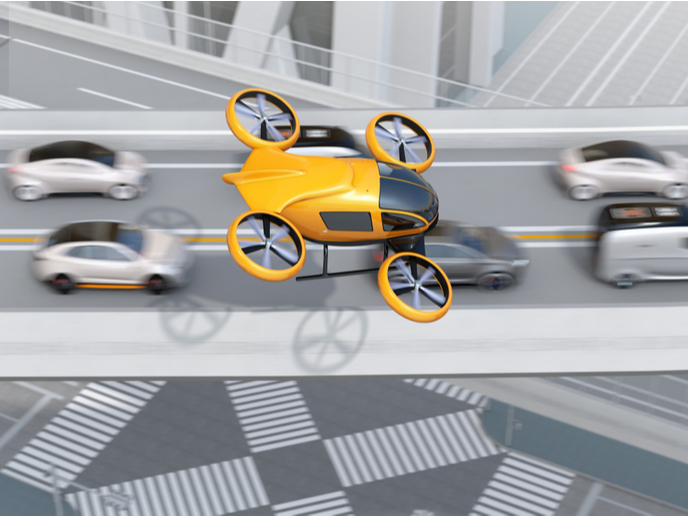European urban mobility takes to the skies
As cities grow bigger, traffic problems increase and transport systems are pushed to their limits. So what’s the logical solution to this problem? Why, taking urban mobility to the airspace above cities, of course. However, this is far from a new concept. In recent years, researchers from many different sectors have been trying to find safe, efficient and environmentally friendly urban air mobility (UAM) solutions to the traffic congestion issues cities face. With sustainable UAM in mind, the EU-funded projects FF2020, AiRMOUR and AURORA have now formed a coalition to create an end-to-end chain of UAM developments and innovations. Besides setting up this ecosystem of UAM solutions, the collaborative network also aims to raise stakeholder and public awareness of these solutions and enhance their acceptance. Very-low-altitude zero-emission passenger or cargo-carrying drones have shown promise as a means for cities to improve their citizens’ quality of life. This technology is currently being explored by various smaller-scale and independent initiatives and EU-funded projects that are applying UAM solutions to different sectors and regulatory frameworks. However, a more comprehensive alliance that combines all these initiatives is needed if UAM solutions are to become a sustainable option for European cities. “Joining forces provides benefits to all parties of this ever-expanding coalition and facilitates the strengthening of these relationships,” states a news item posted on the FF2020 website. To this end, the coalition has set itself four joint tasks. The first involves further developing and incorporating very-low-altitude drone transport by fostering public and private partnerships with unmanned aircraft system industrialists, drone operators, infrastructure developers, local governments and regulators. Second, the network aims to consolidate “current UAM activities to form a community of knowledge transfer and engagement-building practices.” The third task entails “unifying stakeholder management processes to organise, monitor and improve relationships with stakeholders to achieve a successful positioning of this UAM ecosystem globally.” The fourth is “connecting urban airspace experts from different sectors of the ecosystem to facilitate crossover industry innovation and knowledge transfer.”
Open dialogue and increased citizen awareness
The coalition partners also highlight the importance of maintaining an open dialogue with EU bodies to tackle any issues that may arise as developments in urban airspace technology become more prevalent and outpace the regulations in force. “This collaborative network builds, integrates and aligns technology, along with EU-compliant interoperability, governance model and legal frameworks. This will help to address any concerns in a unified approach for a common purpose,” the news item states. Through their coalition, the FF2020 (Creating the 21st century spatial ecosystem), AiRMOUR (Enabling sustainable AiR MObility in URrban contexts via emergency and medical services), and AURORA (sAfe Urban aiR mObility for euRopeAn citizens.) projects ultimately aim to enhance citizens’ awareness and acceptance of UAM solutions. The hope is that breaking through the current barriers to UAM uptake will have a positive impact on all Europeans’ lives. For more information, please see: FF2020 project website AiRMOUR project website AURORA project website
Keywords
FF2020, AiRMOUR, AURORA, city, airspace, urban air mobility, UAM, drone



